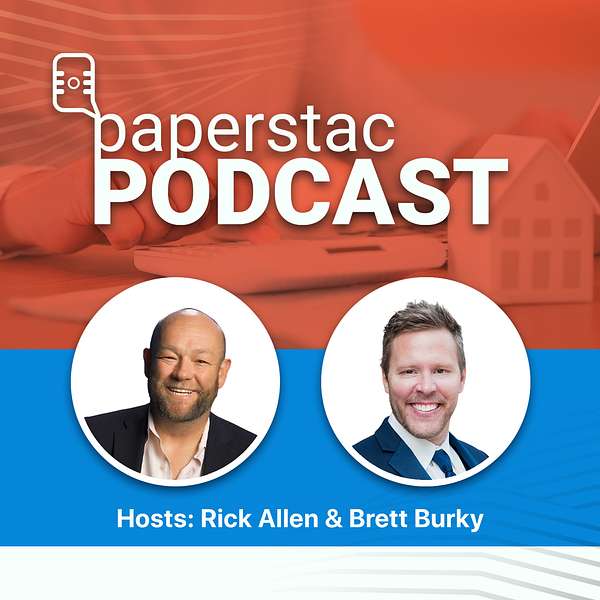
Mortgage Note Investing Weekly
We run Paperstac (a marketplace for mortgage notes) we get a lot of questions from buyers and sellers and with our podcast, we cover the questions that come and share the answers with everyone.
We cover strategies, tips & expert secrets to help you improve YOUR note-investing business.
Mortgage Note Investing Weekly
EP139: The Key Differences Between CFDs and Other Security Instruments
Use Left/Right to seek, Home/End to jump to start or end. Hold shift to jump forward or backward.
In this video, Brett and Rick delve into the key differences between CFDs, mortgages, and deeds of trust.
Mortgage notes, deeds of trust, and contracts for deeds are all common security instruments in real estate investing. However, their differences can be a bit tricky to understand. We're here to simplify them for you.
Rick and Brett also share valuable insights and experiences from the recent Diversified Mortgage Expo (DME) in Nashville. They cover everything from key takeaways and event highlights to detailed discussions on real estate investment strategies. This episode is full of essential information for both beginners and experienced investors.
Join us as we delve into the details of contracts for deeds, mortgages, and deeds of trust in this edition of the Paperstac Podcast.
________________________________
CHAPTERS:
0:00 Intro
0:05 DME Event Recap
1:44 Fun Activities at DME: Axe Throwing Competition
2:44 The Importance of Technology in the Industry
3:20 Insights on Land Investments
3:50 Learning about Syndications
5:01 Networking at Conferences
5:58 Attending as an Attendee vs. a Vendor
6:06 Differences Between Contract for Deed, Deed of Trust, and Mortgage
8:00 Detailed Discussion on Contract for Deed
10:00 Legal Nuances and Recording Procedures
12:00 Deed of Trust vs. Mortgage
15:00 Tax Benefits and Ownership in Contract for Deed
_____________________________
1️⃣ Contract for Deed: Buyer makes installment payments, gains equitable ownership, and gets the deed upon full payment.
2️⃣ Deed of Trust: Involves borrower, lender, and trustee; trustee holds the title; allows non-judicial foreclosure.
3️⃣ Mortgage: Two-party agreement; lender holds a lien; judicial foreclosure required.
________________________________________
🎬 Share this video: https://youtu.be/mOm38IQ8huw
➤ Don't forget to like, comment, and subscribe to our channel for more captivating content on mortgage notes and real estate investing.
SUBSCRIBE HERE: 👇
👉https://pstac.co/subscribe_on_youtube 👈
_______________________________________________________
➤ LET'S CONNECT ON SOCIAL MEDIA
https://www.instagram.com/paper_stac/
http
Follow Us On These Platforms:👇
- Facebook: https://pstac.co/facebook
- Linkedin: https://pstac.co/linkedin
- Twitter: https://pstac.co/twitter
- TikTok: ...

